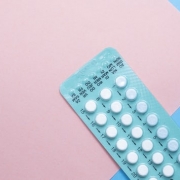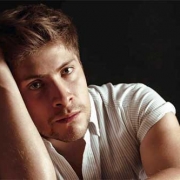While it is a natural part of the aging process, hair loss can occur at any age, and seeking help early on can make a substantial difference in preserving your natural hair. In this comprehensive guide, we will explore the importance of addressing hair loss sooner rather than later and discuss various treatment options available to slow down the progression of hair loss and stimulate natural hair growth.
Understanding the Causes of Hair Loss
Before delving into the significance of seeking hair loss treatment early, it is essential to understand the underlying causes of hair loss. Hair loss can be classified into two categories: permanent and temporary. Permanent hair loss is often the result of genetic factors, such as male and female pattern baldness, or traumatic events that damage the hair follicles irreversibly. On the other hand, temporary hair loss can be caused by factors like illnesses, medications, or high levels of stress. Identifying the cause of your hair loss is crucial in determining the most appropriate treatment approach.
The Impact of Age on Hair Transplants
Age plays a significant role when considering hair transplant surgery. Hair loss that occurs in the late teens or early 20s can be distressing, but undergoing a hair transplant at a young age may not always be the best solution. It is important to consider the long-term implications and the potential for future hair loss progression. The availability of donor grafts, which are limited, should also be taken into account. A reputable hair restoration doctor with expertise in age-appropriate hair transplant decisions can help guide individuals through this process and advise on the best course of action.
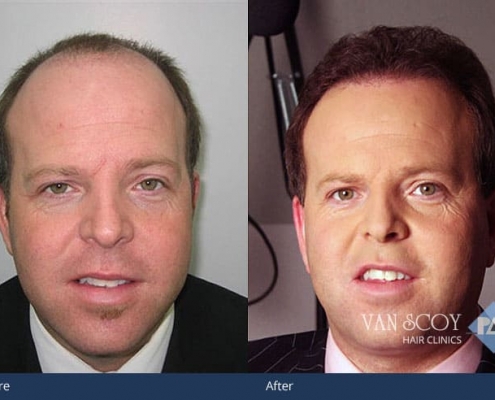
Slowing the Progression of Hair Loss
One of the primary reasons for seeking hair loss treatment early is the opportunity to slow down the progression of hair loss. Early intervention allows for a wider range of treatment options that can effectively stimulate natural hair growth. Treatments such as laser hair growth therapy and topical regrowth treatments are particularly effective in the early stages of hair loss. These treatments work by restoring nutrients and improving blood flow to the hair follicles, thereby slowing down or halting further hair loss.
For individuals experiencing temporary hair loss, seeking treatment can help expedite the regrowth of natural hair. Hair loss treatments, such as medications or alternative therapies, can increase blood flow to the scalp and hair follicles, promoting faster and thicker hair growth. Taking action at the first signs of hair loss can significantly improve the chances of achieving a full head of hair and restoring confidence.
Personalized Treatment Approach
Each individual’s hair loss situation is unique, and therefore, it is crucial to seek a personalized treatment approach. Factors such as age, pattern of hair loss, family history, and overall health must be taken into consideration when determining the most appropriate treatment options. Consulting with a reputable hair restoration doctor who can conduct a thorough evaluation and design an individualized treatment plan is essential. This ensures that the treatment aligns with the specific needs and circumstances of the individual, maximizing the chances of successful hair restoration.
While hair transplant surgery is a popular option for addressing hair loss, alternative treatments can also be effective, especially when sought early. Medications and alternative therapies, such as Rogaine® (Minoxidil), can help slow down hair loss and promote regrowth. These treatments are typically available over the counter and can be used in conjunction with other therapies to enhance their effectiveness. Additionally, vitamins, minerals, and supplements may be recommended to address any deficiencies that could contribute to hair loss.
Non-Surgical Solutions
In some cases, non-surgical solutions can provide excellent results without the need for invasive procedures. Wigs and concealers offer immediate results and can help boost self-esteem while providing a natural appearance. Custom-made wigs and non-surgical hair replacement systems, in particular, provide a seamless and indistinguishable solution for individuals experiencing hair loss. Consulting with a hair restoration specialist can help individuals explore these non-surgical options and find the best fit for their needs.
The Importance of Timely Action
When it comes to hair loss, timing is crucial. Seeking help at the first signs of hair loss can significantly impact the outcome of treatment. The earlier the intervention, the greater the chances of preserving natural hair and slowing down the progression of hair loss. Delaying treatment can result in the loss of viable donor grafts, limited treatment options, and more challenging restoration procedures in the future. Taking action and consulting with a hair restoration specialist as soon as possible is the key to achieving the best possible results.
Hair Loss Help in Ohio
Hair loss can be a distressing experience, but seeking help early can make all the difference in preserving natural hair and restoring confidence. Understanding the causes of hair loss, the impact of age on treatment options, and the benefits of early intervention are essential in making informed decisions. Whether through surgical or non-surgical approaches, personalized treatment plans can effectively slow down hair loss and stimulate natural hair growth. Remember, the earlier you seek treatment, the better the chances of achieving optimal results. Don’t wait any longer – take the first step towards addressing your hair loss concerns today.

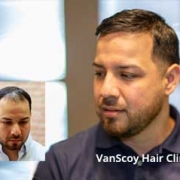
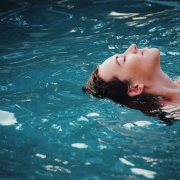
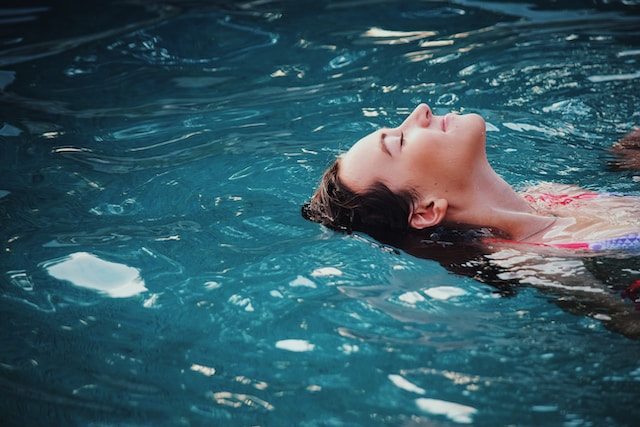 Summer is almost here and swimming pools are opening up. Swimming is a great way to have fun and keep fit, but the chlorine in pool water can dry out your hair, making it more prone to breakage and split ends. It can also wreak havoc on colors and perms. Here are some tips to help you prevent
Summer is almost here and swimming pools are opening up. Swimming is a great way to have fun and keep fit, but the chlorine in pool water can dry out your hair, making it more prone to breakage and split ends. It can also wreak havoc on colors and perms. Here are some tips to help you prevent 
 Hair loss is stressful, especially at a young age. If your hair has started falling out increasingly more as each year passes, this can lead to a decrease in self-confidence. Whether it is the result of stress, poor diet, or hereditary issues, losing your hair is a uniquely difficult experience.
Hair loss is stressful, especially at a young age. If your hair has started falling out increasingly more as each year passes, this can lead to a decrease in self-confidence. Whether it is the result of stress, poor diet, or hereditary issues, losing your hair is a uniquely difficult experience.  Starting off the new year always comes with a host of New Year’s resolutions. Some may include going to the gym or eating healthier. But if you are a man or woman who hates to look in the mirror because all you can fixate on is how thin your hair has become, the New Year is the perfect time to finally do something about your hair loss and restore a full head of amazingly great looking hair in the latest styles or in your old favorite style.
Starting off the new year always comes with a host of New Year’s resolutions. Some may include going to the gym or eating healthier. But if you are a man or woman who hates to look in the mirror because all you can fixate on is how thin your hair has become, the New Year is the perfect time to finally do something about your hair loss and restore a full head of amazingly great looking hair in the latest styles or in your old favorite style.
 Hair care product purchases differ wildly from women o men. Googling for the general amount of money that women spend on hair products, and hair care products more specifically, the figure of about $700/year comes up quite often. On the other hand, men spend only about 30% of that amount on their hair care products, including styling products.
Hair care product purchases differ wildly from women o men. Googling for the general amount of money that women spend on hair products, and hair care products more specifically, the figure of about $700/year comes up quite often. On the other hand, men spend only about 30% of that amount on their hair care products, including styling products.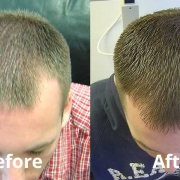
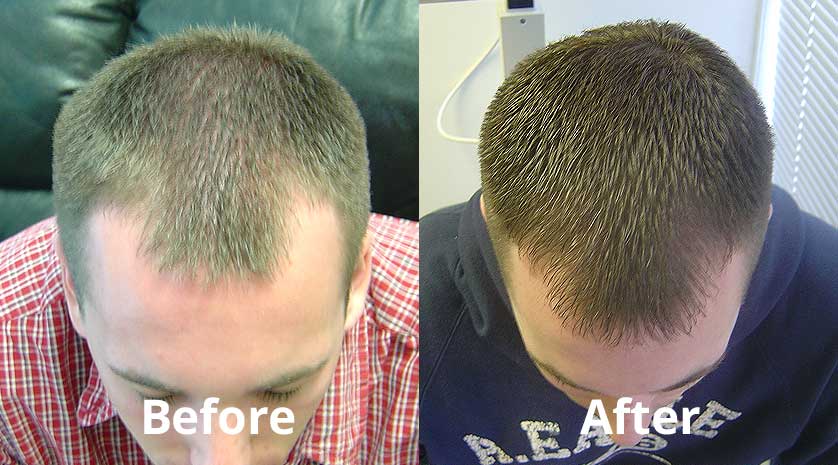 Low-Level Laser Therapy (LLLT) which is also known as low-intensity lasers is used to promote tissue repair and regeneration.
Low-Level Laser Therapy (LLLT) which is also known as low-intensity lasers is used to promote tissue repair and regeneration. 